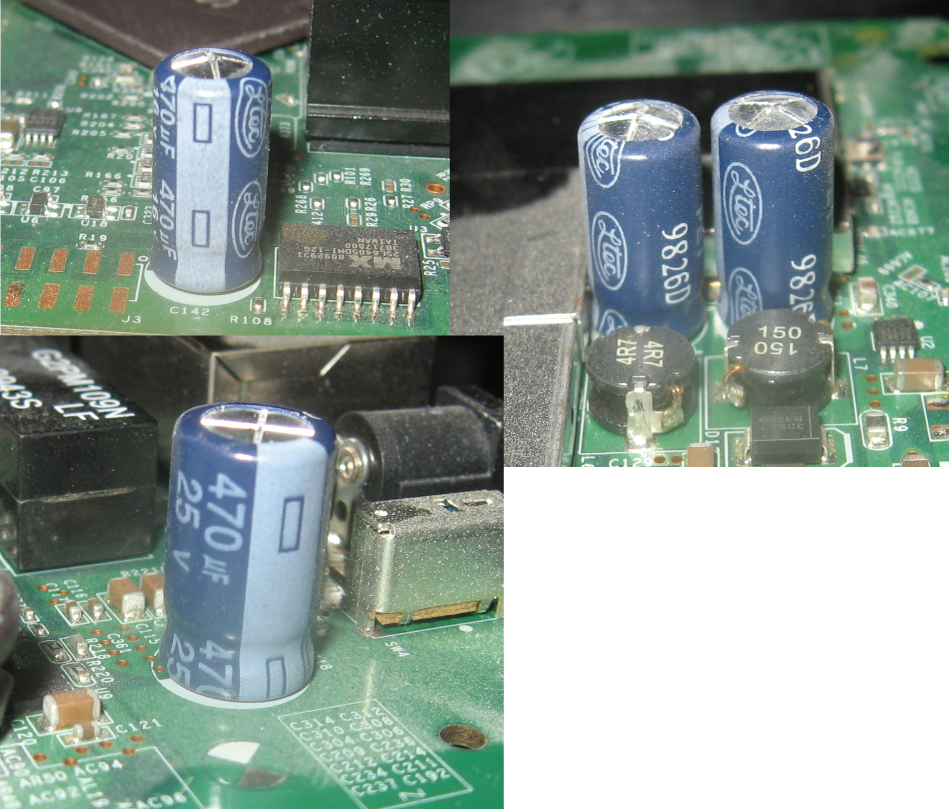NETGEAR is aware of a growing number of phone and online scams. To learn how to stay safe click here.
Forum Discussion
Ascaris5
Nov 16, 2015Aspirant
WNDR3700v1 wireless throughput half of DIR-825
Hi, First, am I remembering correctly when I think there used to be a dedicated subforum for the 3700? If it is here, I don't see it. It's been years, though; I have had this router a long time...
- Nov 18, 2015
Then it's definitely a hardware failure.
Ascaris5
Nov 18, 2015Aspirant
I've only had one router fail before (although I currently own 5), and it just stopped working one day-- no lights, no anything. Is this the usual way they fail if they don't just suddenly die?
I flashed the WNDR3700 to DD-WRT, and the wireless speed was even lower than with the stock firmware (about 3 MB/s). I messed with the settings all I could, but I could not get it going any faster. With that in mind, I went back to the stock firmware using the router's recovery mode, and it worked... but the speed was still 3MB/sec.
It does look like its giving all it's got. Even with excellent signal strength and 300mbps connect speed, it's slow. It's even slower in the b/g band, which probably has something to do with all of the other APs using that band around here.
The D-Link is actually working pretty well so far. I don't remember why I switched from it to the 3700; I know the 3700's cpu is about twice as fast, but I can't remember what I was doing (if anything) where that mattered. Or maybe it was unreliable... I don't remember. I've been using the Netgear for a long time!
I do find the onboard setup utility to be needlessly confusing compared to the Netgear version, and the constant logging me out while I am changing settings (and not accepting the changes as a result) is infuriating... but it is much faster than the 3700 on wireless and just as fast on gigabit wired.
doraemon
Nov 18, 2015Prodigy
Then it's definitely a hardware failure.
- Ascaris5Nov 19, 2015Aspirant
I think you're right.
I opened the WNDR3700 up... look at these capacitors:

Only one of the four is not visibly bulged.
Ltec caps, Netgear, really? A quality router needs quality parts!
Looks straightforward enough to replace them, though.
- doraemonNov 19, 2015Prodigy
Are you going to replace those capacitors? Give an update after.
Good luck!
- Ascaris5Nov 22, 2015Aspirant
That's the plan! I ordered the new capacitors today, so they should be here within a week or so. Thanks for pointing me toward hardware-- I was focused so much on the often-buggy firmware that I could not see the forest for the trees. Once I was thinking hardware, my mind immediately went to capacitors-- that was why I opened the unit. I don't think there is anything else I would be able to diagnose or fix inside the unit.
What a pain cheap capacitors are. I also have a Cooler Master PSU and an LG Flatron monitor that have partly or totally failed, and upon inspection were found to have bulged capacitors. The PSU is not really worth fixing as it was a lower efficiency unit without PFC anyway, but I will also try to fix the monitor (I ordered the parts for it too). The people over at badcaps.net are helpful for all kinds of capacitor issues.
The four caps for the 3700 and the five for the monitor, in premium quality items with low ESR, cost under six dollars, and that's the retail price for a very small number of them. It would have been a lot less for Netgear or LG to buy those instead of the Ltec and Su'scon caps, and the devices would last longer and make for happier customers. Sure, they made it past warranty, but customers expect to be able to use things they buy longer than that, and having an item die on them before they think it should have makes it more likely they won't buy that brand in the future. Since capacitors are the most likely (as far as I can tell) components to fail from normal use of a properly-designed electronic device, does it really save money in the long term to use cheapo caps rather than good ones?
I know when I was in the market for a new PSU (active-PFC, gold or better efficiency, modular), it was top-tier caps across the board or nothing. Inspecting the capacitors and other components in a PSU is the norm for all of the good tech sites that do reviews on them, but that level of attention has not filtered down to reviewers of things like routers, unfortunately. If top tier (Japanese, usually) capacitors were a selling point as they are for PSUs, motherboards, etc., I am sure Netgear would have used them. I'd bet that all of the other consumer router makers use cheapo caps too; this is not a Netgear thing. It's a consumer electronics thing.
I will post again after the replacement is done!